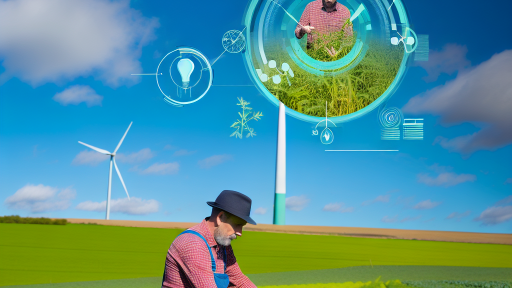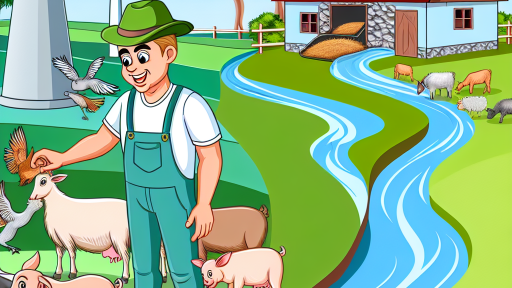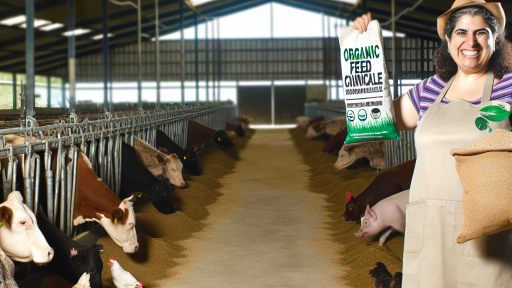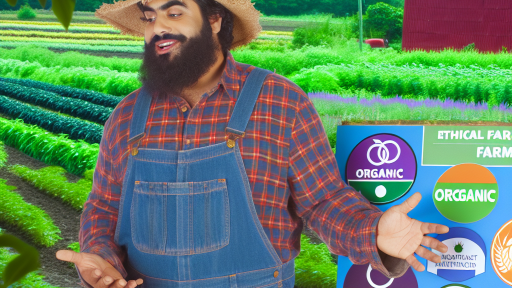Overview of Sustainable Farming
Definition of Sustainable Farming
Sustainable farming focuses on producing food while safeguarding the environment.
It incorporates practices that promote ecological health and resource conservation.
This approach fosters the well-being of farming communities and ecosystems alike.
Importance of Sustainable Farming
Sustainable farming is crucial for several reasons.
First, it helps mitigate climate change by reducing greenhouse gas emissions.
Second, it enhances soil health and preserves water resources.
This method promotes biodiversity by supporting various plant and animal species.
Long-Term Viability
Adopting sustainable practices ensures long-term agricultural productivity.
Farmers can produce high-quality food without depleting natural resources.
Moreover, it secures the livelihoods of future generations in the farming sector.
Social and Economic Benefits
Sustainable farming encourages social equity among agricultural workers.
It fosters community engagement and local food systems.
This approach also opens avenues for innovative economic models in agriculture.
Types of Sustainable Farming Equipment
Essential Tools for Eco-Friendly Practices
Sustainable farming relies on various types of equipment to ensure eco-friendly practices.
These tools promote efficiency while reducing environmental impact.
Transform Your Agribusiness
Unlock your farm's potential with expert advice tailored to your needs. Get actionable steps that drive real results.
Get StartedUnderstanding the essential tools can enhance productivity in sustainable agriculture.
Mechanical Equipment
Mechanical equipment plays a significant role in sustainable farming.
Farmers utilize tractors that run on biofuels to reduce fossil fuel dependency.
Additionally, they employ solar-powered devices to operate efficiently.
Planting and tilling machines have also advanced with eco-friendly technology.
Tractors and Tillage Equipment
Modern tractors often feature low-emission engines.
These tractors are compatible with various attachments for diverse tasks.
Conventional tillage is being replaced by no-till methods that conserve soil health.
Irrigation Systems
Irrigation equipment has evolved to promote water conservation.
Drip irrigation systems deliver water directly to plant roots.
This method reduces water waste and enhances crop yield.
Hand Tools
Hand tools remain important for smaller sustainable farms.
They allow for more precise and environmentally friendly practices.
Farmers often utilize tools like hoes and rakes made from sustainable materials.
Organic Gardening Tools
Organic gardening tools minimize the impact on the environment.
Materials like bamboo and recycled metals are becoming popular.
Such choices promote sustainability at a grassroots level.
Innovative Technologies
Technological innovations are transforming sustainable farming practices.
Farmers increasingly use drones for crop monitoring and management.
These drones provide valuable data on plant health and resource distribution.
Precision Agriculture
Precision agriculture utilizes GPS technology for efficient land management.
This method enhances productivity while minimizing waste.
Farmers can apply fertilizers and pesticides only where needed.
Smart Farming Solutions
Smart farming equipment enables real-time data collection and analysis.
Showcase Your Farming Business
Publish your professional farming services profile on our blog for a one-time fee of $200 and reach a dedicated audience of farmers and agribusiness owners.
Publish Your ProfileFarmers can monitor soil conditions and weather patterns effectively.
This information helps optimize resource use and improve crop performance.
Renewable Energy Sources
Incorporating renewable energy in farming equipment is vital for sustainability.
Solar panels provide renewable energy for various farm operations.
Wind turbines are also being adopted in some farming communities.
Energy-Efficient Farming
Energy-efficient equipment reduces operational costs and environmental impact.
Investing in energy-efficient technologies supports long-term sustainability goals.
This investment also benefits farmers by enhancing profitability.
Innovations in Sustainable Farming Technology
Overview of Recent Developments
New technologies are reshaping sustainable farming.
Farmers now adopt innovative practices to improve yield.
Recent advancements focus on efficiency and reduced waste.
Moreover, these developments lead to healthier ecosystems.
Precision Agriculture
Precision agriculture employs data analytics to optimize production.
This technology uses sensors and satellite imagery.
Farmers gain real-time insights into soil conditions.
Consequently, they apply resources more effectively.
This practice significantly reduces chemical inputs.
Soil Health Enhancements
Innovative products improve soil health and fertility.
Microbial inoculants enhance nutrient cycling.
Cover cropping prevents erosion and enhances biodiversity.
These practices increase organic matter in the soil.
As a result, soils can retain moisture better.
Alternative Energy Sources
Many farms now utilize renewable energy sources.
For example, solar panels power irrigation systems.
Wind turbines generate electricity for farm operations.
This transition reduces reliance on fossil fuels.
Farmers can decrease their carbon footprint significantly.
Smart Irrigation Systems
Smart irrigation technologies help conserve water.
Soil moisture sensors determine watering needs.
This approach minimizes water waste during irrigation.
Farmers can automate schedules based on weather data.
The result is optimal crop growth with minimal resource use.
Vertical Farming Techniques
Vertical farming allows crops to grow in stacked layers.
This method uses controlled environments for year-round production.
Indoor farms utilize less land compared to traditional methods.
Furthermore, they reduce transportation emissions significantly.
As such, this model supports urban food security.
Biotechnology and Genetic Engineering
Biotechnology enhances crop resilience against pests and diseases.
Scientists develop genetically modified varieties with specific traits.
These crops often require fewer chemical applications.
Showcase Your Farming Business
Publish your professional farming services profile on our blog for a one-time fee of $200 and reach a dedicated audience of farmers and agribusiness owners.
Publish Your ProfileConsequently, farmers experience increases in yield and sustainability.
Research continues to ensure safety and efficacy in these innovations.
Uncover the Details: Promoting Local Agriculture via School Programs
The Role of Renewable Energy in Farming Equipment
Solar Energy Solutions
Solar energy significantly enhances farming equipment efficiency.
Farmers install solar panels on barns or irrigation systems.
This setup provides renewable energy for various agricultural tasks.
For instance, solar-powered pumps streamline water management.
Consequently, farmers reduce reliance on fossil fuels.
Moreover, solar energy lowers overall operational costs.
Many farmers report increased savings and productivity.
Solar technology continues to advance, expanding its capabilities.
Wind Energy Solutions
Wind energy plays a crucial role in sustainable farming practices.
Farmers can harness wind power through turbines on-site.
These turbines convert wind into electricity efficiently.
Farm operations, such as grain drying, benefit significantly from this energy.
Furthermore, wind energy reduces greenhouse gas emissions.
In turn, this contributes to a healthier environment.
Farmers often combine wind and solar energy systems for maximum impact.
This hybrid approach enhances energy resilience on farms.
Bioenergy Solutions
Bioenergy offers an innovative alternative for sustainable agriculture.
This energy comes from organic materials, such as crop residues.
Farmers can convert waste into biogas for power generation.
This process reduces waste while providing energy for various needs.
Additionally, bioenergy can be used for heating and cooking.
Such practices promote energy independence for farming operations.
Farmers who adopt bioenergy solutions enjoy economic benefits.
Overall, bioenergy fosters a circular economy within agriculture.
Gain More Insights: How CSAs Promote Sustainable Farming Practices
Precision Agriculture: How Technology is Enhancing Sustainable Crop Management
Overview of Precision Agriculture
Precision agriculture utilizes technology to improve farming practices.
This approach involves data collection and analysis.
Farmers use precision tools to make informed decisions.
Ultimately, it enhances crop yields while minimizing waste.
Technological Innovations in Precision Agriculture
Several technologies drive advancements in precision agriculture.
GPS technology allows farmers to monitor their fields accurately.
Drones provide aerial views of crop health and growth patterns.
Sensors collect real-time data on soil conditions and moisture levels.
These innovations lead to more efficient resource use in farming.
Benefits of Precision Agriculture
Precision agriculture improves the sustainability of crop management.
It reduces chemical inputs by applying only where needed.
Farmers can optimize water use through smart irrigation systems.
Showcase Your Farming Business
Publish your professional farming services profile on our blog for a one-time fee of $200 and reach a dedicated audience of farmers and agribusiness owners.
Publish Your ProfileThis technology facilitates better crop planning and yield forecasting.
Consequently, it contributes to higher productivity and profitability.
Case Studies of Successful Implementation
Numerous farms have successfully adopted precision agriculture techniques.
For instance, Green Valley Farms uses drones for crop monitoring.
This practice increased their crop yield by 20% last season.
Moonlight Orchards implemented soil sensors to manage irrigation.
They reduced water usage by 30% while improving fruit quality.
Challenges in Adopting Precision Agriculture
Despite its advantages, some challenges exist in adopting precision agriculture.
The upfront cost of technology can be a barrier for some farmers.
Additionally, a lack of technical expertise poses challenges.
Farmers may face difficulties integrating new technologies with existing practices.
However, ongoing training and support can alleviate these issues.
The Future of Precision Agriculture
The future of precision agriculture looks promising.
Emerging technologies continue to evolve and improve.
Artificial intelligence and machine learning will enhance data analysis.
As a result, farmers may achieve even greater efficiencies.
Ultimately, this progression leads to more sustainable farming practices.
Delve into the Subject: Seasonal Eating Strategies for Farm-to-Table Success
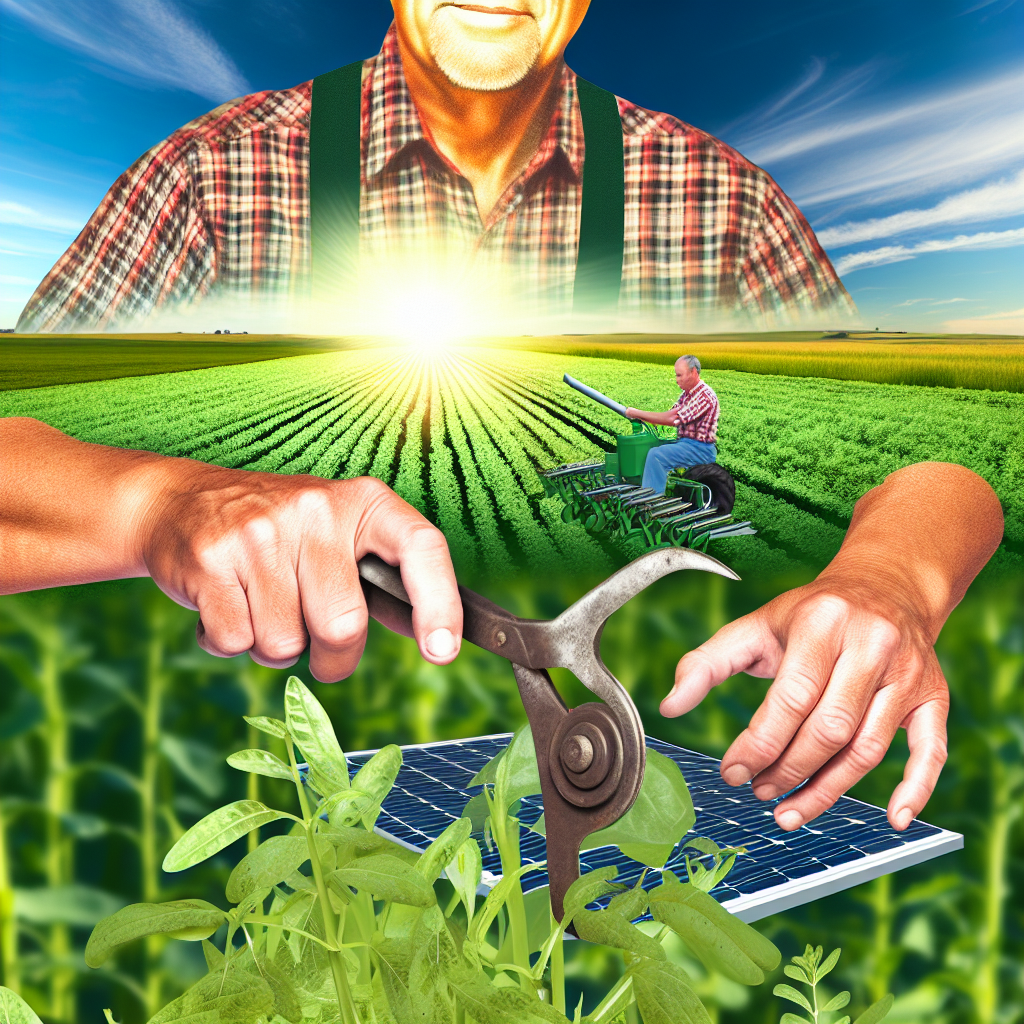
Case Studies: Successful Implementations of Sustainable Farming Equipment
Innovative Irrigation Systems
Farmers in California adopted drip irrigation systems effectively.
This method reduced water consumption by 30 percent.
It also increased crop yields significantly.
Moreover, farmers reported improved soil moisture levels.
This resulted in healthier plants throughout the growing season.
Renewable Energy Solutions
A dairy farm in Wisconsin implemented solar panels seamlessly.
This change reduced energy costs by half.
Additionally, the farm became energy self-sufficient.
Such innovations contribute to a lower carbon footprint.
Consequently, the surrounding community benefits from cleaner energy.
Precision Agriculture Technologies
Precision farming techniques emerged in Iowa to optimize resources.
Farmers utilized GPS technology for accurate planting.
This led to reduced waste and enhanced crop management practices.
Similarly, drones provided real-time data on crop health.
As a result, farmers made informed decisions quickly.
Organic Pest Control Methods
A farm in Oregon adopted beneficial insect releases for pest management.
This organic approach minimized the use of chemical pesticides.
Farmers observed increased biodiversity as a result.
This practice ensured healthier ecosystems in their fields.
Furthermore, consumers appreciated the natural farming methods used.
Community Supported Agriculture Initiatives
A successful project in New York involves local community engagement.
Through subscription models, consumers receive fresh produce directly.
Showcase Your Farming Business
Publish your professional farming services profile on our blog for a one-time fee of $200 and reach a dedicated audience of farmers and agribusiness owners.
Publish Your ProfileThis approach supports local farmers and reduces transportation emissions.
Additionally, it fosters a stronger relationship between consumers and producers.
Such initiatives encourage sustainable practices among new farmers.
Delve into the Subject: Benefits of Farm-to-School Programs for Farmers
Challenges and Barriers to Adoption of Sustainable Innovations in Agriculture
Financial Constraints
Many farmers face significant financial challenges when adopting new technologies.
High upfront costs deter investment in sustainable equipment.
Without sufficient funding, farmers struggle to transition to sustainable practices.
This creates a dependency on traditional farming methods.
Lack of Awareness and Education
A lack of awareness exists regarding sustainable innovations among farmers.
Many are unaware of the benefits these practices provide.
Educational resources are often scarce or inaccessible.
This knowledge gap hampers the adoption of new technologies.
Technological Barriers
Some farmers encounter challenges related to technology compatibility.
Older equipment may not integrate well with sustainable innovations.
This issue often requires additional investments in new machinery.
Technical support is also limited, further complicating transitions.
Cultural Resistance
Cultural attitudes towards traditional farming methods can pose barriers.
Many farmers are hesitant to change practices they have used for generations.
This resistance can hinder the adoption of sustainable practices.
Moreover, community norms can influence individual decision-making.
Policy and Regulatory Challenges
Policy frameworks often do not support sustainable practices adequately.
Farmers may face regulatory hurdles when implementing innovations.
Inconsistent government support creates uncertainty in the market.
This unpredictability discourages investment in sustainable agriculture.
Market Demand and Consumer Awareness
Market demand for sustainably produced goods remains inconsistent.
Without sufficient consumer knowledge, price premiums are not justified.
This can limit farmers’ motivation to adopt sustainable practices.
A lack of clear marketing strategies further complicates the situation.
Future Trends: Predictions for Sustainable Farming Equipment and Practices
Emerging Technologies
Technology will drive sustainable farming practices forward.
Farmers will adopt precision agriculture tools for efficient resource use.
These tools will allow real-time monitoring of soil and crop health.
Consequently, farmers can make informed decisions based on data analysis.
Moreover, drones will play a vital role in crop monitoring.
This technology will improve yield while reducing chemical application.
Renewable Energy Sources
Renewable energy will become integral in sustainable farming.
Farmers will increasingly utilize solar panels and wind turbines.
These sources offer cost-effective energy solutions over time.
Additionally, biofuel production will gain traction among agribusinesses.
By converting agricultural waste into fuel, they will reduce waste significantly.
Smart Farm Equipment
Smart farming equipment will revolutionize the industry.
Showcase Your Farming Business
Publish your professional farming services profile on our blog for a one-time fee of $200 and reach a dedicated audience of farmers and agribusiness owners.
Publish Your ProfileRobotics and automation will enhance efficiency and reduce labor costs.
Equipment will feature innovative sensors to monitor field conditions.
This advancement helps farmers optimize irrigation and fertilization practices.
Notably, autonomous tractors will lead the way in mechanization.
Sustainable Practices and Certifications
Farmers will increasingly embrace sustainable certification programs.
These programs will help promote eco-friendly farming practices.
Consumers will favor products with certification labels for transparency.
Consequently, businesses will focus on sustainable branding to attract customers.
Community and Support Networks
The importance of community support in sustainable farming will grow.
Farmers will collaborate through local organizations and cooperatives.
This cooperation fosters knowledge sharing among producers.
Mentorship will play a role in helping new farmers adopt sustainable methods.
Furthermore, social media will provide platforms for sharing resources.
Additional Resources
The History of the Farm to Table Movement
Farm to Table: Building Local and Regional Food Systems – SARE

